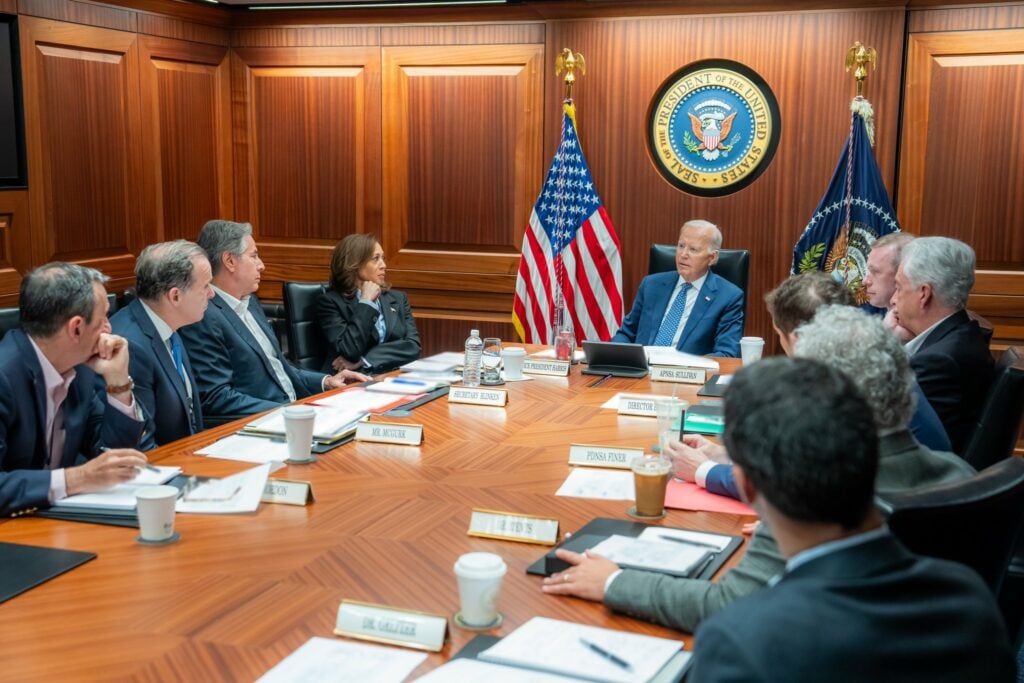
Kamala Harris has never been one to shy away from a challenge, but her recent tight-rope walk between Jewish Americans and pro-Palestinian protesters has left many wondering where exactly she stands—and who she’s really standing with.
For Jewish Americans, Harris’s position on Israel feels frustratingly lukewarm. They see the escalating violence in the region and want a strong, unwavering commitment to Israel’s security, a commitment they feel Harris hasn’t fully delivered. Sure, she’s made statements about supporting Israel’s right to defend itself, but these words often come paired with calls for restraint and concern over Palestinian casualties. This careful balancing act, while diplomatic, doesn’t offer the kind of clear, unequivocal support that many Jewish Americans are looking for.
“Today, @POTUS and I met with the U.S. hostage deal negotiation team. The murder of Hersh Goldberg-Polin and five other hostages was a brutal, barbaric act by Hamas terrorists. As @POTUS said, Hamas leaders will pay for these crimes. It is long past time for a ceasefire and hostage deal. We need to bring the hostages home and end the suffering in Gaza,” she tweeted.
On the flip side, pro-Palestinian protesters aren’t thrilled either. They’re demanding bold action—an end to U.S. military aid to Israel, an acknowledgment of the humanitarian crisis in Gaza, and a real push for Palestinian rights. Harris’s measured responses and focus on a two-state solution feel like empty rhetoric to this group, who see her as complicit in upholding the status quo that continues to marginalize Palestinians.
This middle-of-the-road approach has left both sides dissatisfied. Jewish Americans feel that their concerns about Israel’s safety are being diluted by Harris’s attempts to placate pro-Palestinian voices. Meanwhile, pro-Palestinian activists see her as another politician who talks a big game about peace and justice but ultimately upholds policies that perpetuate the conflict.
So where does this leave us? Kamala Harris is trying to be the politician who can have it both ways—supporting Israel while also acknowledging Palestinian suffering. But in a time of heightened tensions and polarized opinions, this balancing act is falling flat. Jewish Americans and pro-Palestinian protesters alike are demanding clarity, conviction, and action—something that Harris’s cautious approach has yet to deliver.
In a political landscape where picking sides seems almost inevitable, Harris’s attempt to please everyone might end up pleasing no one. Whether she’ll adjust her stance or continue to walk this tightrope remains to be seen. But one thing’s for sure: the pressure from both sides isn’t going away anytime soon.

